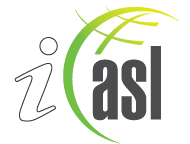

|
|
|
IASL Research Abstracts: 138
Findings: Information literacy development begins in early childhood as children use their knowledge of texts and the world, and their acquired learning strategies when they are engaged with information texts. Information literacy development can be supported when teacher librarians build on these established meaning making processes.
Abstract: Although young children's developing understandings of the concept of narrative have been thoroughly researched, childrenšs information literacy development has gone largely unexamined. This article reports an ethnographic study of young childrenšs understandings of informational texts and offers a grounded theory of these children's information literacy development. Six broad conceptual categories of children's talk emerged from the data analysis: informational text knowledge; world knowledge; representing meaning; building connections; reflective talk, and relational talk. These categories represent the various facets of children's engagement with non-fiction texts and reveal the ways in which these children constructed meaning about and with this type of text. The findings from this study have implications for early childhood education and impact on the teaching of information literacy and the role of the teacher-librarian. See:
Filipenko, M. (2004). Constructing knowledge about and with informational texts: Implications for teacher-Librarians working with young children. School Libraries Worldwide, 10 (1-2)
Subject Categories: 10, 15
